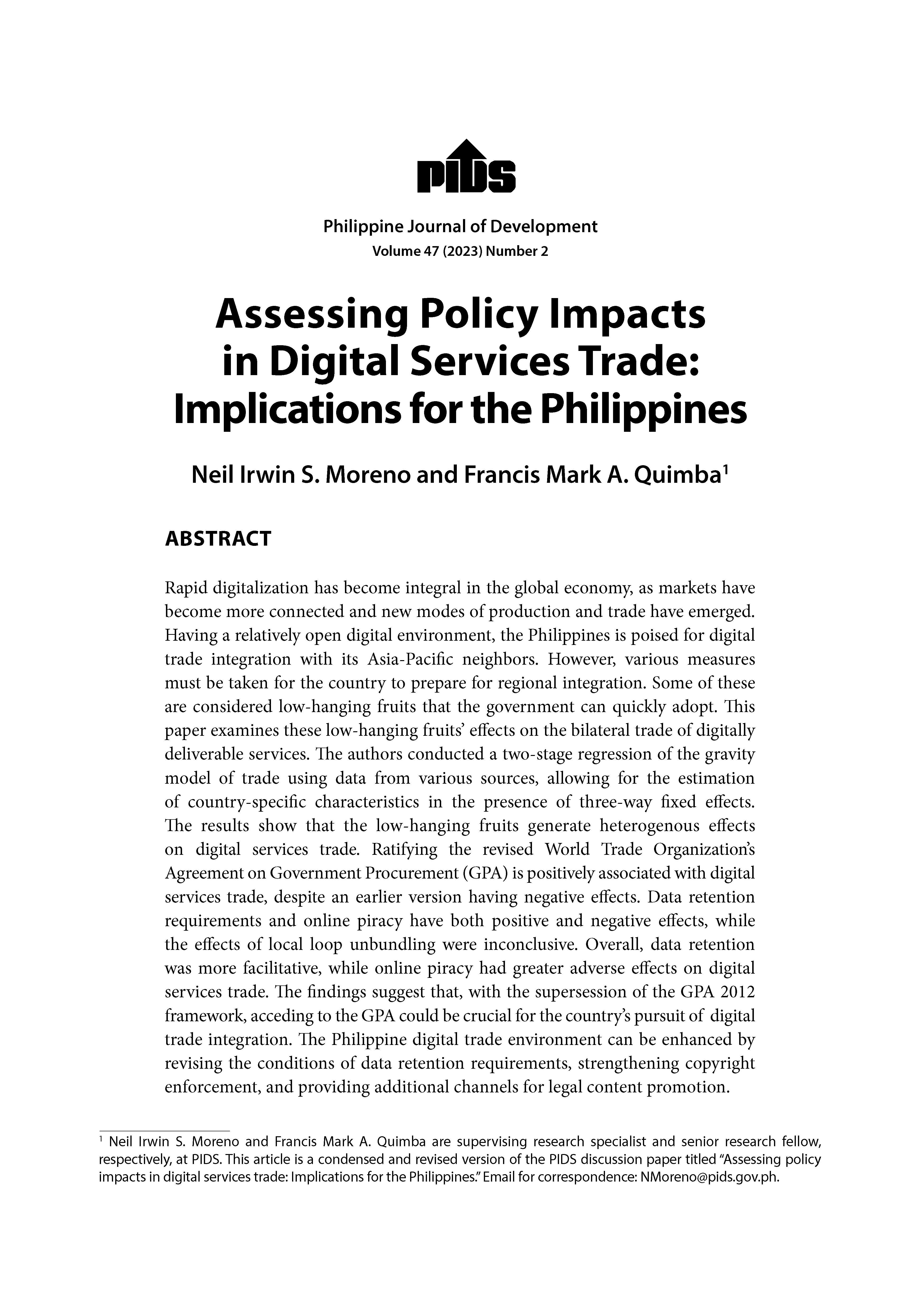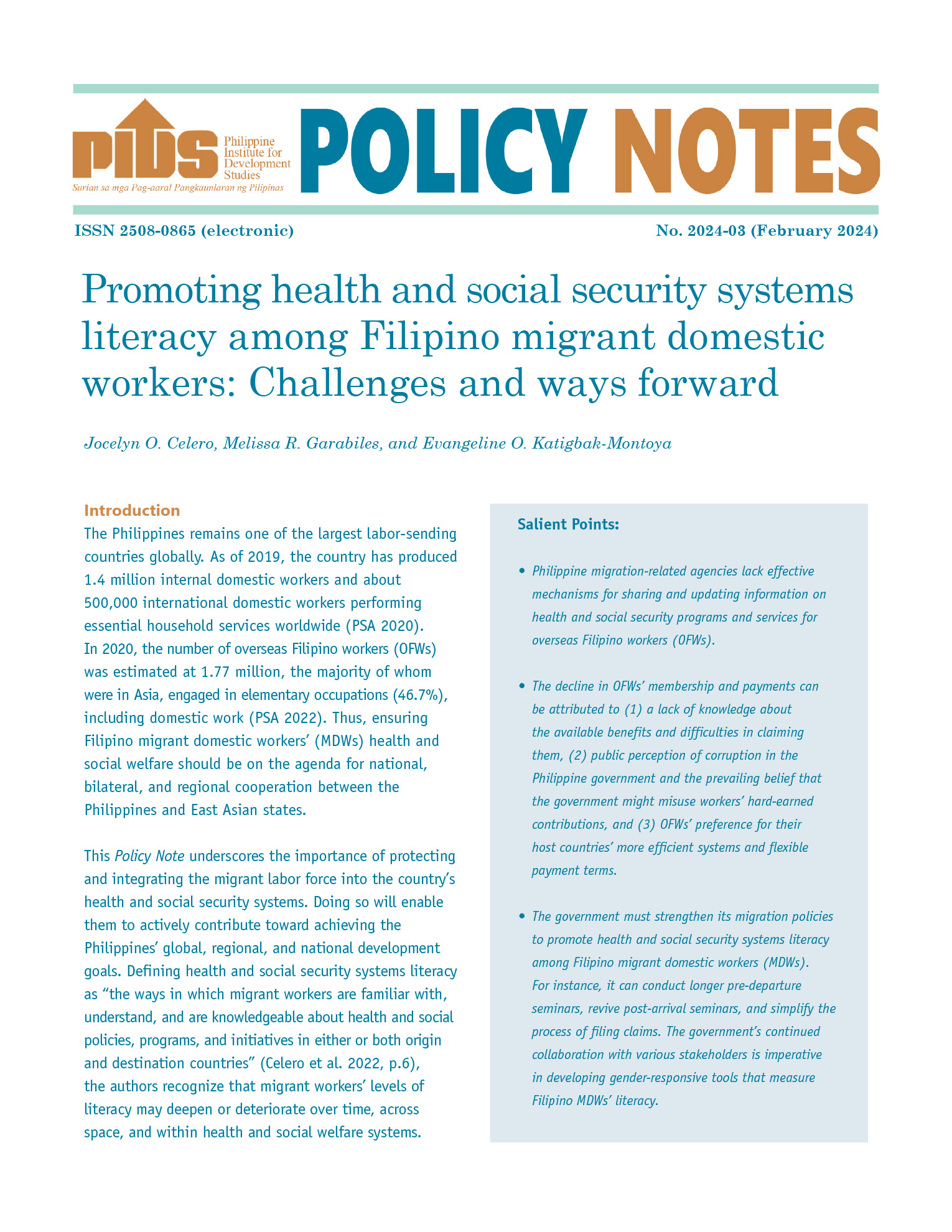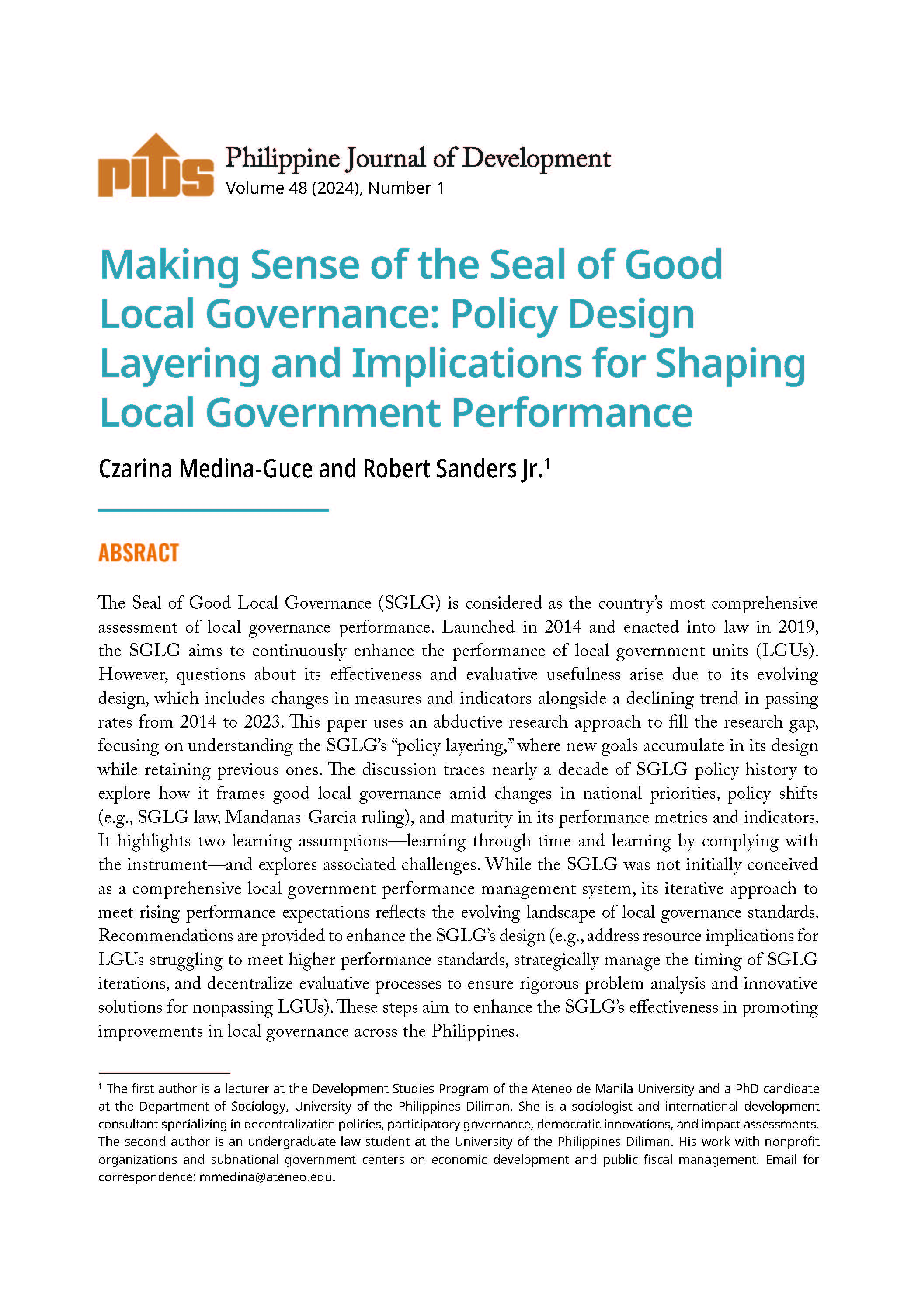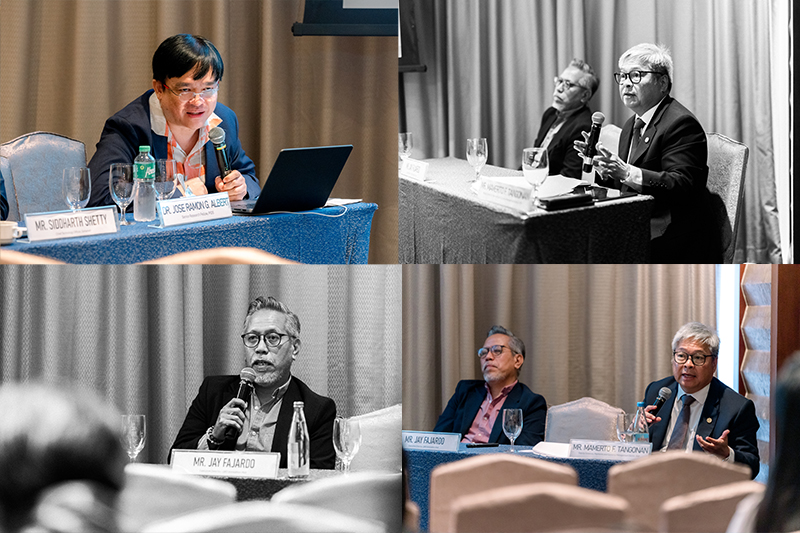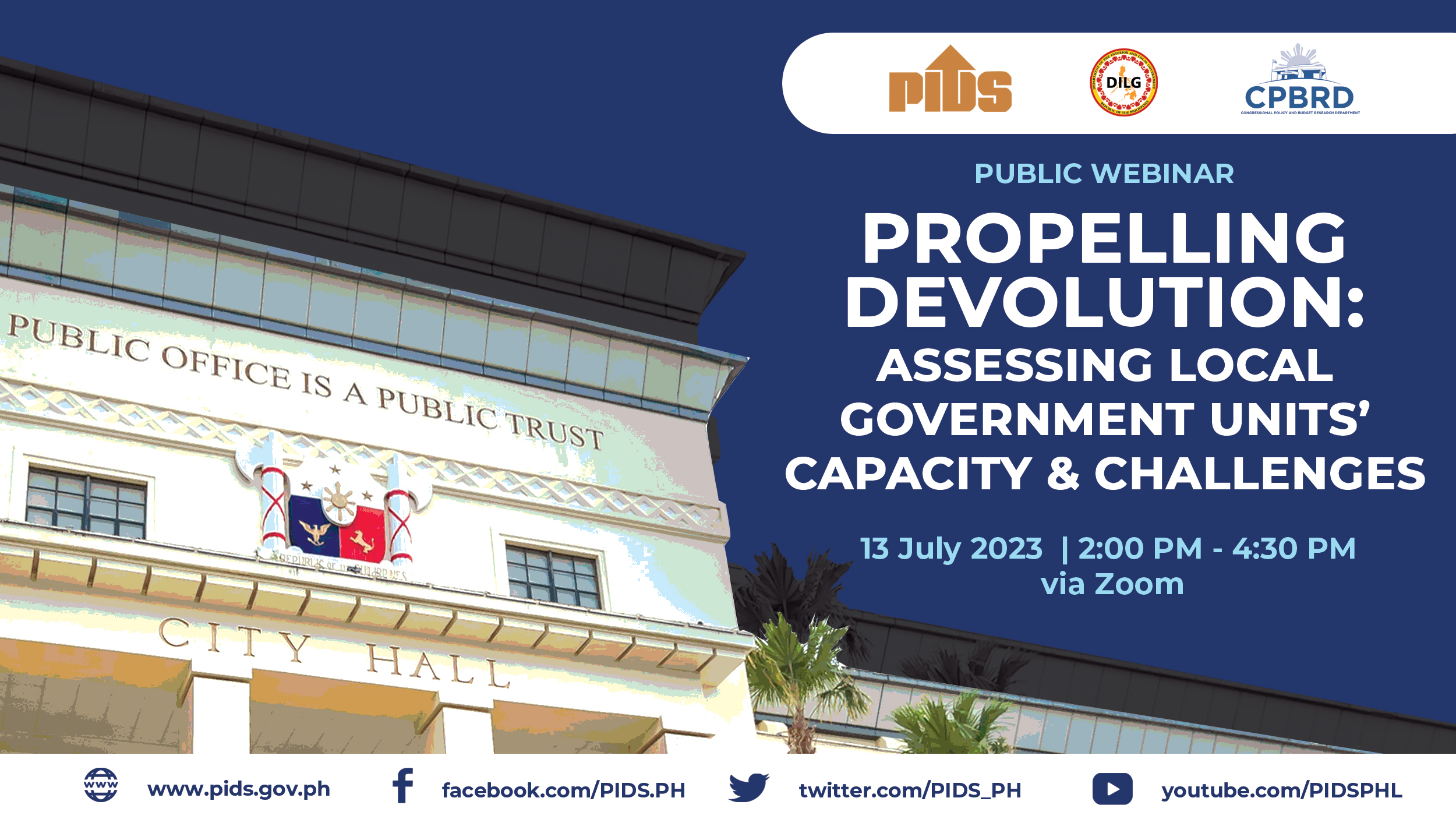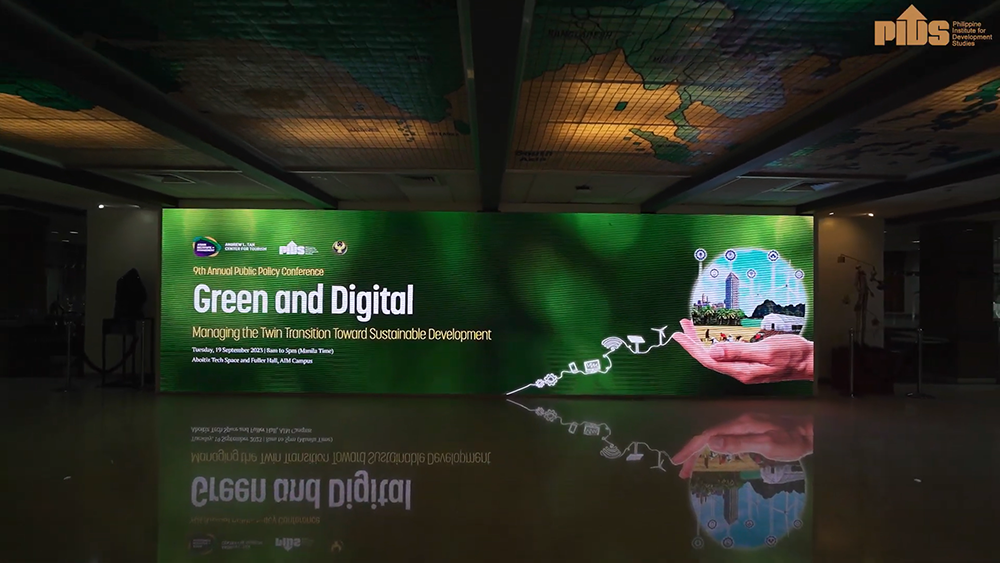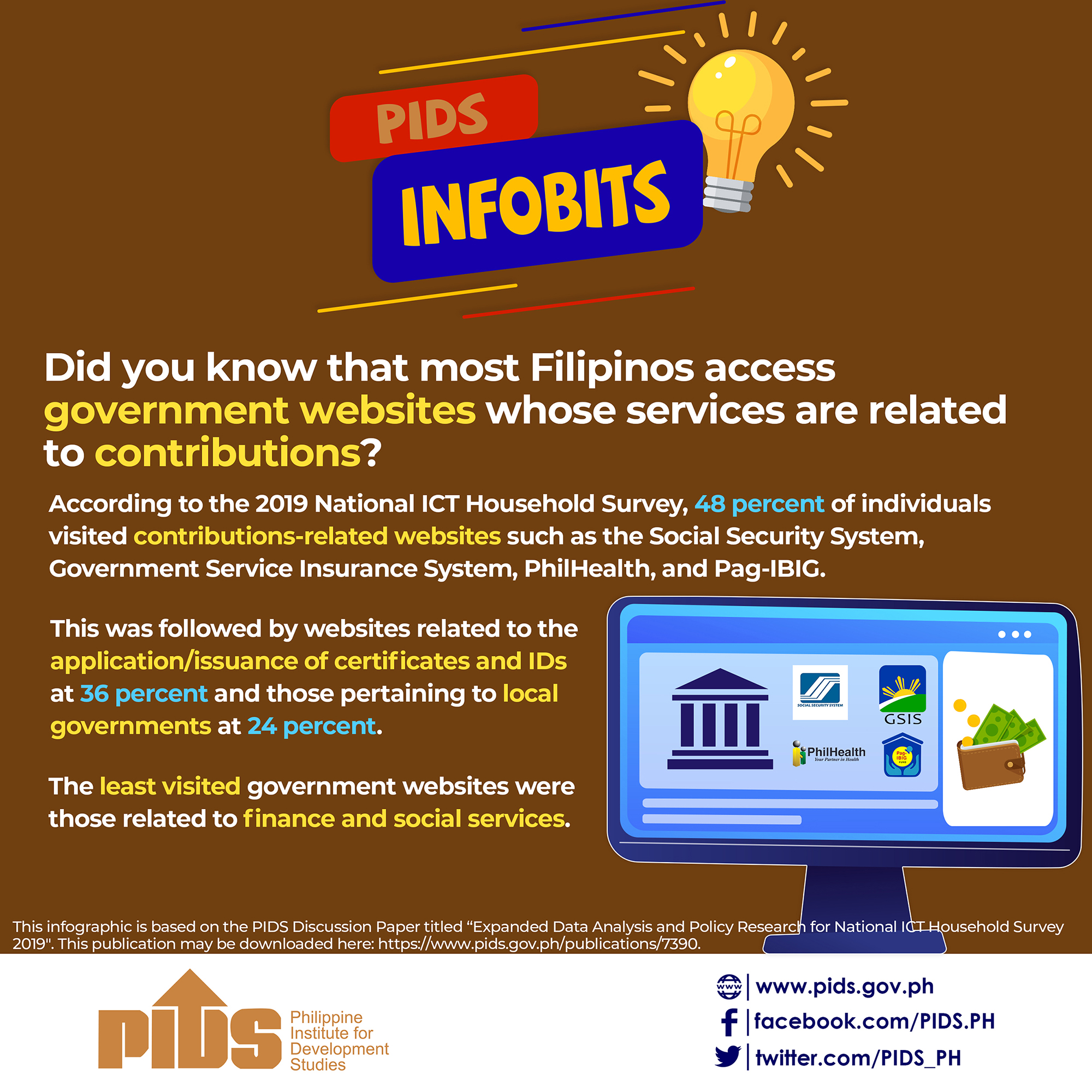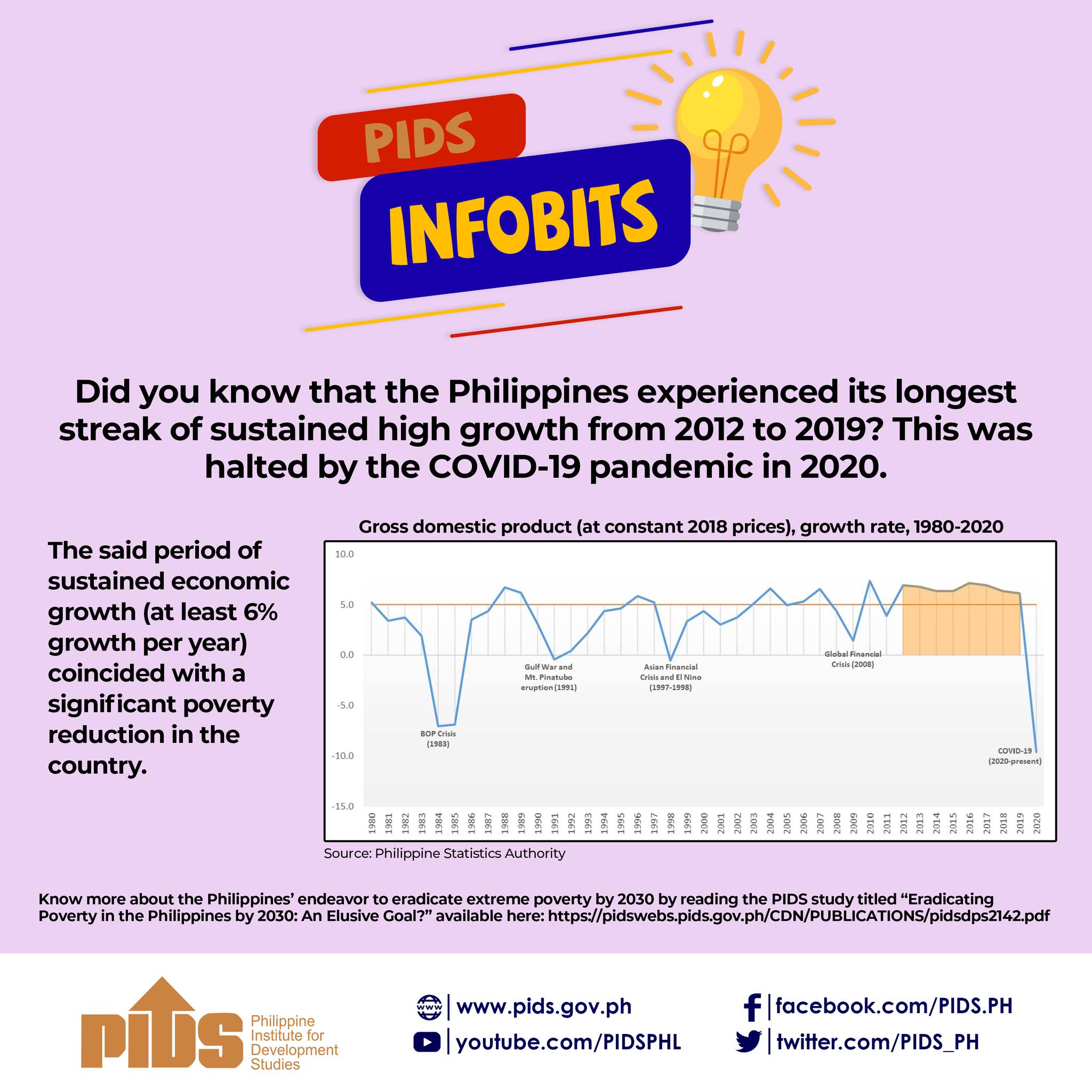QUEZON CITY, Sept. 7 -- This year’s Annual Public Policy Conference (APPC) organized by the Philippine Institute for Development Studies (PIDS) will focus on the topic of ‘New Globalization’, its challenges and implications, as well as the opportunities that come with it.
The APPC is the highlight and culminating activity of the Development Policy Research Month (DPRM) celebration led by PIDS pursuant to Presidential Proclamation No. 247. Held every September, the DPRM aims to promote, enhance, instill, and draw awareness and appreciation of the importance and necessity of policy research in development planning and policymaking.
The 2019 DPRM and APPC share a similar theme, which is “Navigating the New Globalization: Local Actions for Global Challenges” or in Filipino, “Paglalayag sa Bagong Globalisasyon: Lokal naPagkilos sa mga Pandaigdigang Hamon”.
“We are transitioning into a new phase of globalization which is marked by volatility, uncertainty, complexity, and ambiguity. Hence, it is important for us to sit together and discuss how we can deal with it and make it work to our advantage,” said PIDS President Celia Reyes.
Among the challenges of the New Globalization noted by Reyes include global trade restructuring, trade wars, worsening poverty and inequality, underprovision of global public goods, erosion of trust and social cohesion, and proliferation of disinformation. These challenges, Reyes said, will be tackled by international and local experts invited to the APPC on September 19 at the Sofitel Philippine Plaza Manila.
Panel and parallel sessions
The opening plenary of the APPC will touch on the key features of the New Globalization and some country perspectives from well-respected speakers here and abroad.
Meanwhile, the four parallel sessions of the conference will highlight the challenges of the New Globalization such as trends in inequality, global economic restructuring, global public goods and international cooperation, and building trust and cohesion.
The session on inequality will explain how developments ushered in by the New Globalization can widen the gap between the rich and the poor.
The session on global economic restructuring will examine issues related to key changes in global economic linkages (e.g., value chains, trade, investments, and financial flows) and how economic trends in the age of New Globalization can influence domestic politics, governance, and public discourse.
The session on global public goods and international cooperation will focus on cross-border issues related to environment and health that could directly affect the well-being of populations. Policy challenges and opportunities about the growing Philippine ‘blue economy’ will also be discussed in this session along with the interplay of international laws with global public goods.
The session on building trust and social cohesion, on the other hand, will examine how fake news are being manufactured through the aid of digital technology, and how blockchain applications can improve trust in the public sector.
At the concluding plenary, panel speakers will present their ideas on how various stakeholders can work together to navigate the turbulent seas of the New Globalization. They will also put forward policy recommendations and practical steps to ensure that the Philippines is able to achieve sustained, accelerated, and broad-based economic growth.
Panelists and participants will also share their views on how to manage the challenges and opportunities in the areas of equality, competitiveness, employment, privacy, and trust through sound regulatory and legal frameworks and strong institutions.
A one-day exhibit will also run alongside the APPC that will feature the knowledge products of the event’s sponsors, namely, Bangko Sentral ng Pilipinas, Department of Foreign Affairs - Office of the Undersecretary for International Economic Relations, Department of the Interior and Local Government, National Economic and Development Authority, Philippine Competition Commission, Department Trade and Industry, Asian Development Bank, and the Australian government’s Department of Foreign Affairs and Trade. Also joining the exhibit are member-agencies of the DPRM Steering Committee, which include the Civil Service Commission, Philippine Information Agency, Presidential Management Staff, Department of Labor and Employment, Senate Economic Planning Office, Congressional Policy and Budget Research Department, Department of Budget and Management, Department of Health, and the Philippine Climate Change Commission.
Launched by PIDS in 2015, the APPC aims to convene experts and researchers to flag to legislators critical issues that must be addressed in the immediate term. It is envisioned to serve as a platform to further bridge research and policymaking, and enhance evidence-based planning and policy formulation in the country. Themes featured in previous APPCs include “Institutions and Human Capital”, “Building Resilience”, “Critical Perspectives on Federalism”, and “Harnessing the Fourth Industrial Revolution”. (PIDS)

